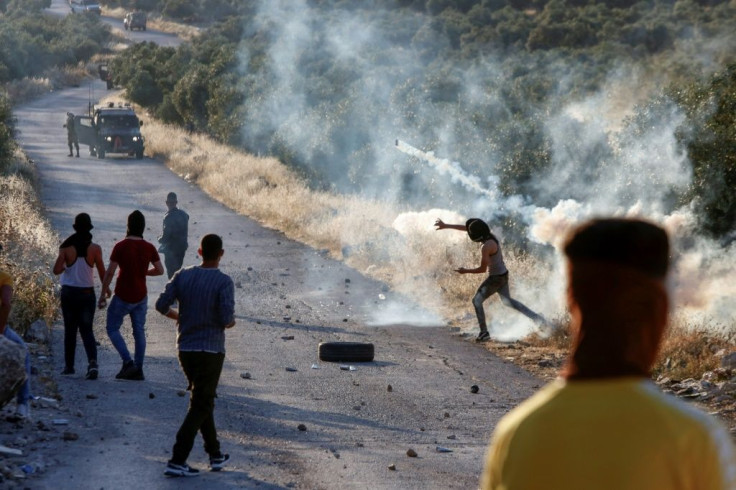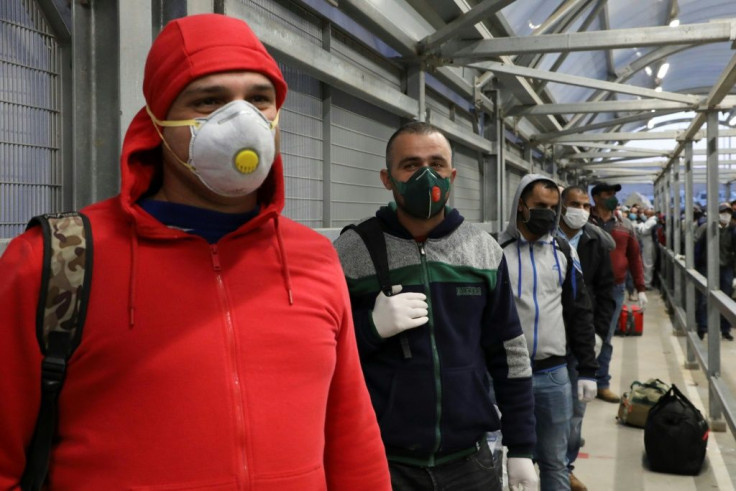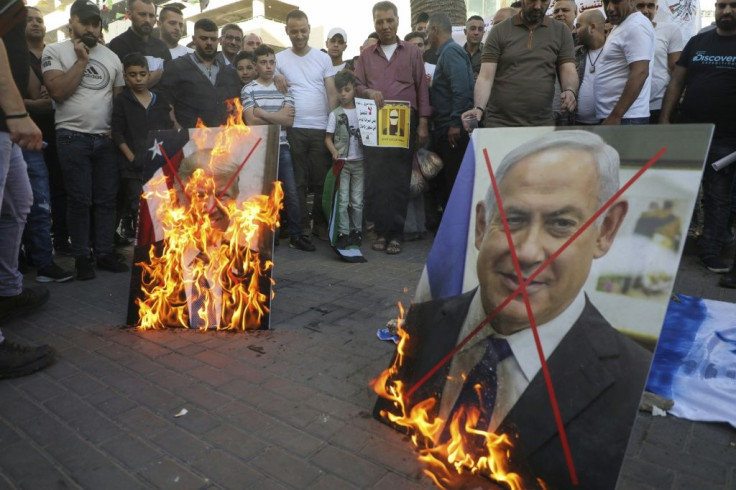West Bank Poverty May Double Over Pandemic As Annexation Looms
Poverty in the occupied West Bank may double as Palestinians are hit by the coronavirus, the World Bank warned Monday, just weeks before Israel aims to kick-start plans to annex parts of the territory.
The United Nations has meanwhile warned that such a move by Prime Minister Benjamin Netanyahu's government would stifle financial and aid flows to the Palestinians and "most likely trigger conflict".
Israel may start the annexation process as soon as July 1 with the support of US President Donald Trump, who in January published a peace plan that was roundly rejected by the Palestinians.

The UN warned in a report Sunday that, without improved relations between the two sides and if annexation goes ahead, "the achievements of the Palestinian government over the last quarter century will fade.
"The peace and security situation will worsen, and a hardened and more extremist politics on both sides will inevitably result."
The annexation plans loom weeks after Netanyahu forged a unity government following more than a year of political deadlock, and as both Israel and the Palestinian territories are assessing the impact of the pandemic.

The Palestinian territories have seen low infection rates after acting quickly to curtail the spread of COVID-19, with three deaths out of 450 cases registered among some five million residents in Gaza and the West Bank.
But the Palestinian Authority's financial situation is "expected to become increasingly difficult" due to loss of income and increased spending on healthcare and other areas, the World Bank said in a report.
The fallout is expected to see the number of households living below the poverty line rise this year from 14 to 30 percent in the West Bank, largely due to Palestinians being unable to cross into Israel for work.

The PA last week announced an end to the lockdown it had imposed in early March across the West Bank after a virus outbreak in the biblical city of Bethlehem, a major tourist site.

The easing allowed more than 63,000 Palestinians to pass through checkpoints for work on Sunday, according to the Israeli military branch handling civilian affairs in the Palestinian territories.
The borders of the Hamas-run Gaza Strip, which has been under a crippling Israeli blockade since 2007, remain closed to all but a few returning Gazans, who are quarantined on arrival.
The poverty rate was already 53 percent in Gaza before the pandemic and the World Bank forecast it would jump to 64 percent this year.
Overall, the Palestinian economy is set to shrink between 7.6 and 11 percent, the global body said, a severe downturn after one percent growth in 2019.
The report recommended investing in mobile networks to boost the economy. Palestinians rely on 2G and 3G mobile data networks in Gaza and the West Bank respectively, at a time when some countries are adopting 5G.
While the PA has taken steps to manage the economic blow brought by coronavirus, the World Bank said its financial gap "could increase alarmingly" from $800 million last year to $1.5 billion this year.
"At this point, it is not possible to say how long it will take for the economy to recover from the current containment measures," the bank said.
The Palestinian government relies heavily on donor support to function as it is unable to implement stimulus measures used by countries elsewhere, such as lowering interest rates or accessing international capital markets.
Despite the increased financial needs, support for this year's PA budget is the lowest in two decade, according to the World Bank.
Last month an Israeli official said an 800-million-shekel ($228-million) loan had been approved for the PA, to help make up for revenues lost during coronavirus.
The office of the UN's special Middle East envoy called for "vast resources" to be deployed by the Palestinian and Israeli governments, as well as by foreign donors and the private sector, in response to the pandemic.
While humanitarian and development aid remains important, the United Nations said, "different and bolder action is required to avert economic collapse".
© Copyright AFP 2024. All rights reserved.





















